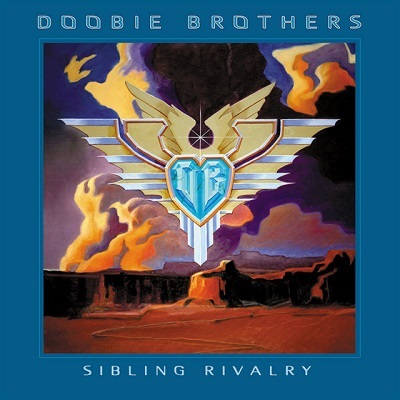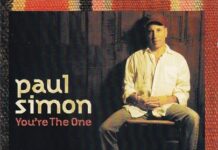The Doobie Brothers have weathered enough styles and changes in personnel to deserve recognition as the sturdy and successful unit they are. Embracing an easy-going, country-infected stance that has always been at the foundation of their sound, Sibling Rivalry, released in 2000, didn’t exactly set the world on fire. It did, however, satisfy those who yearn for the simple rhythm and lightly textured harmonies that the Doobies have always been known for. Without Michael McDonald in the fold, the band reached beyond the blue-eyed funk/jazz leanings that, to many of their early fans, almost killed off their credibility as a viable rock and roll band.
The album opens with the swinging “People Gotta Love Again.” Much in the vein of “Listen To The Music,” guitarist Tom Johnston’s message addresses everybody who needs to take a look around and start respecting each other a little more. The country-blues “Leave My Heartache Behind” from Patrick Simmons is reminiscent of the 1974 hit, “Black Water”. The band succumbs to mellower strains with the rather ordinary, “Ordinary Man,” but bounces back with the upbeat “Jericho.” It doesn’t last long as the band falls into the meager “On Every Corner” that only sustains itself with a blend of Doobie-like lush harmonies and decent guitar work by Johnston, Simmons and John McFee. It grows even more placid on Michael Hossack’s “Angels Of Madness,” which could have used a boast from someone like McDonald.
Thankfully, Johnston kicks things back into place with “45th Floor,” a politically charged ode that somehow shifts the entire outfit into high gear. After that, things settle down again with “Can’t Stand To Lose,” co-written by Poco’s Rusty Young and sounding more like the Eagles than the Doobie Brothers. “Higher Ground” shuffles along aimlessly but finds its voice with a catchy refrain. “Gates Of Eden” doesn’t bring much to the table while “Don’t Be Afraid” trips into a contemporary jazz booby trap. Drummer Keith Knudson, whose songwriting credits appear through-out the more somber tunes of the CD, finally manages to let loose on “Rocking Horse.” With Johnston and McFee tearing into some wailing leads, this song manages to lift the album out of the slumbers. Finishing off with the solid and breezy acoustical instrumental, “Five Corners,” Sibling Rivalry, following 1991’s Brotherhood, is everything you’d expect from a group of 70s rockers at the top of the new century. It would be another 10 years until The Doobie Brothers delivered another studio album. That is another story altogether.
~ Shawn Perry




















